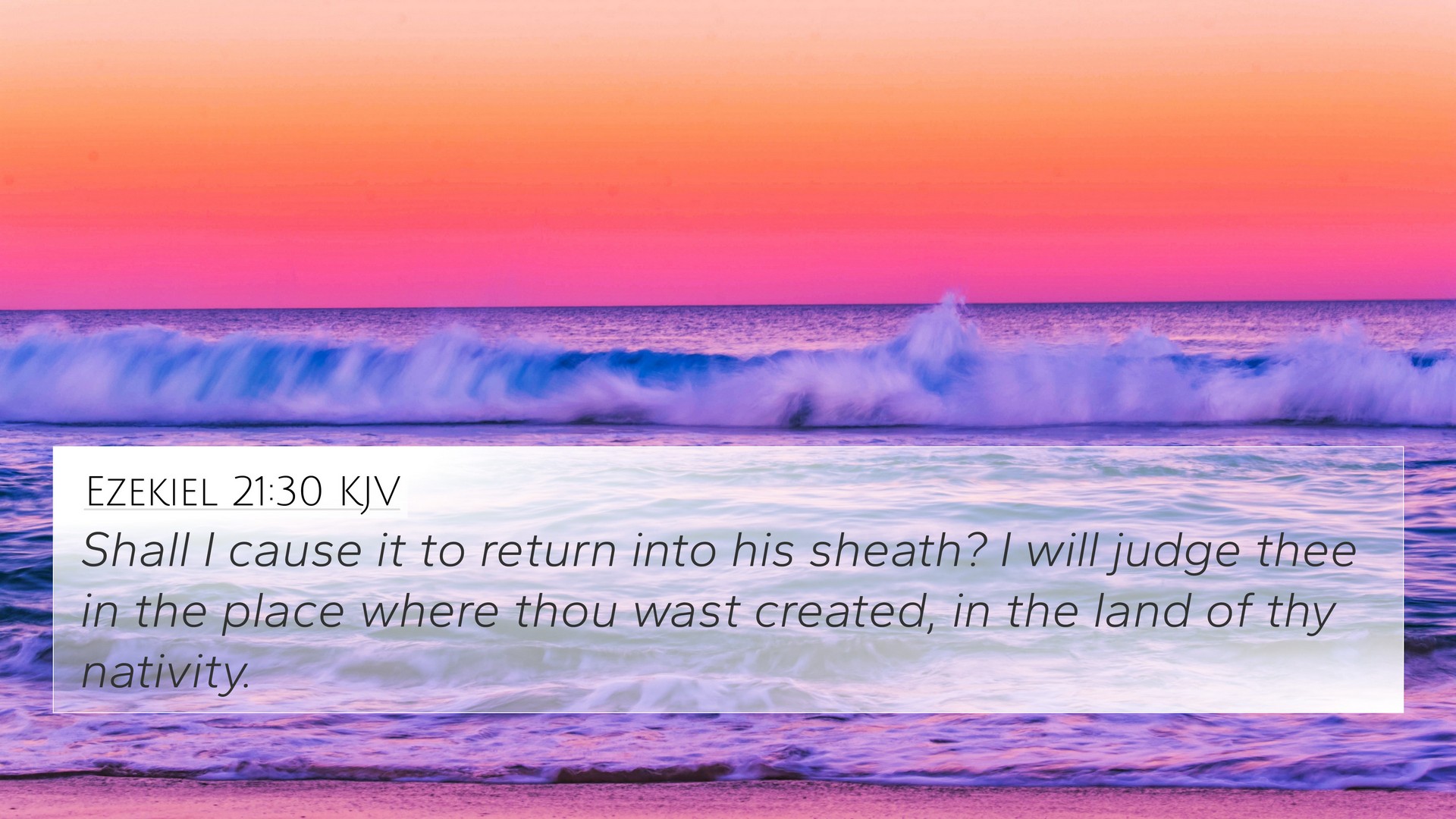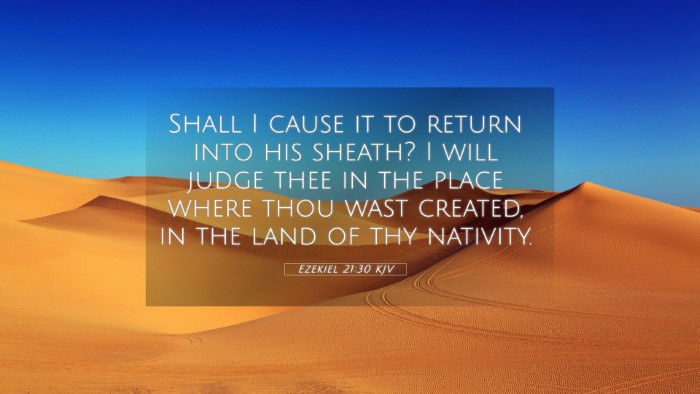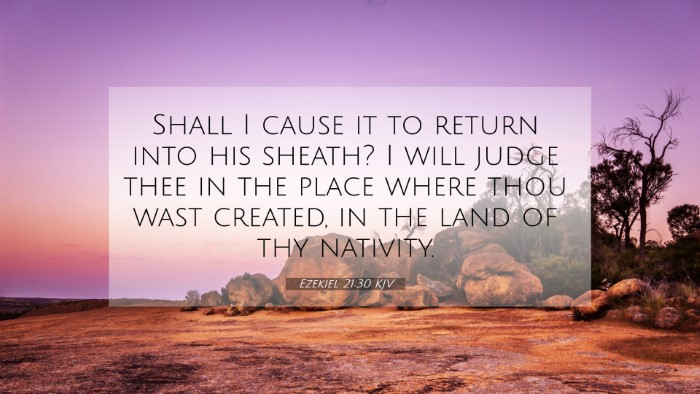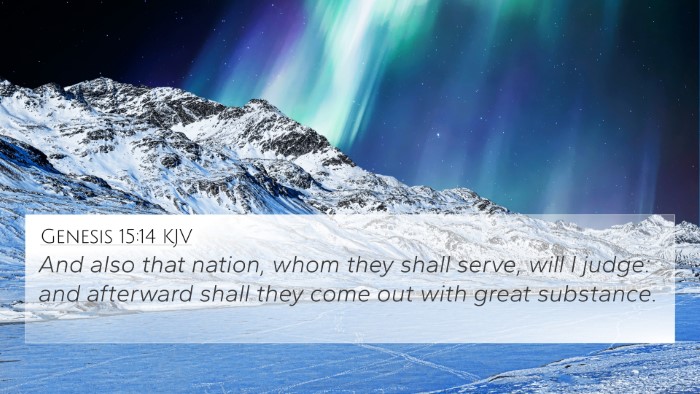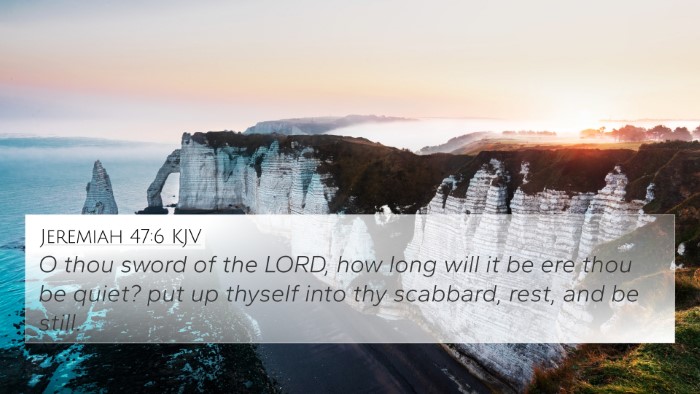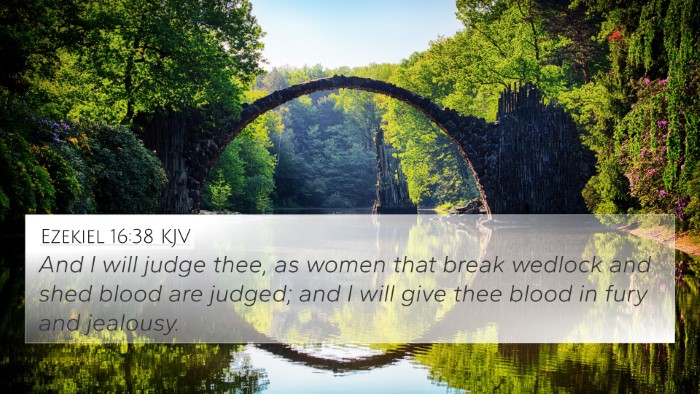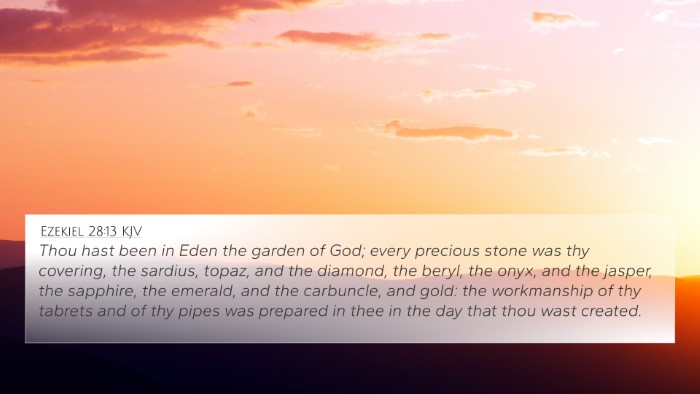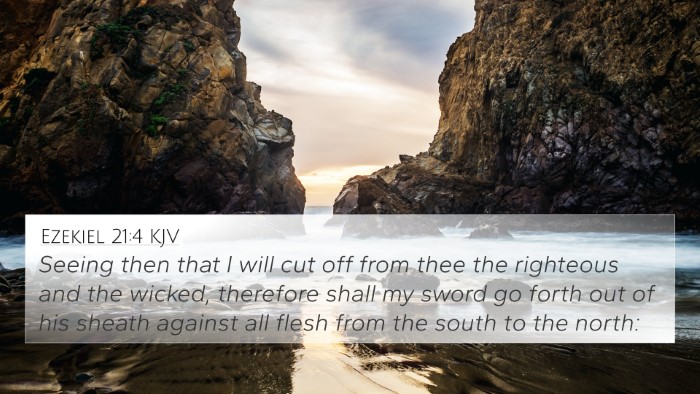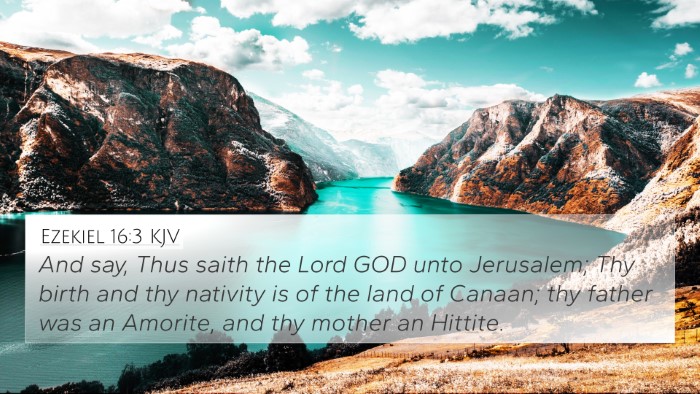Ezekiel 21:30 - Summary and Interpretation
Bible Verse: Ezekiel 21:30
"And you, O sword, are you still at rest? I will put you into the sheath; and you will be drawn no more, says the Lord."
Meaning and Interpretation
This verse from Ezekiel symbolizes God's judgment and the impending end of conflict, represented by the "sword." The mention of putting the sword back into its sheath signifies a cessation of hostilities and a divine decree to no longer engage in violence. This imagery connects with the themes of divine authority and control over destiny as illustrated throughout the Bible.
Insights from Commentaries
-
Matthew Henry's Commentary:
Henry emphasizes that this verse illustrates God's power to end the sword's destructive capabilities. The sword, which symbolizes judgment and destruction, is a reminder of the consequences of sin, particularly for Israel and Judah. Henry links this to God's mercy, showing that He can choose to sheath the sword and bring peace again.
-
Albert Barnes' Notes:
Barnes notes that the "sword" represents God's instrument of judgment against the house of Israel. The act of sheathing the sword can also imply that God is withdrawing His active judgment, an important turn in the prophetic declaration that holds significance for understanding God's relationship with His people.
-
Adam Clarke's Commentary:
Clarke interprets this verse as God's assurance that He controls the destiny of nations and can bring peace when He decides, in contrast to human attempts at conflict resolution. Clarke connects this to the overarching narrative of God's covenant with Israel, emphasizing His sovereignty and faithfulness amid struggle.
Cross References
This verse can be connected with several other biblical passages that enhance the understanding of its message:
- Revelation 13:10: "If anyone is to go into captivity, to captivity they go; if anyone is to be killed with the sword, with the sword must he be killed." - This verse highlights the inevitability of divine judgment similar to that found in Ezekiel.
- Jeremiah 47:6: "O you sword of the Lord, how long till you are quiet?" - A parallel theme on the symbolism of the sword as a tool of God's judgment.
- Isaiah 2:4: "He shall judge between the nations, and shall decide disputes for many peoples; and they shall beat their swords into plowshares..." - A promise of peace that reflects the cessation of violence.
- Psalm 76:3: "There he broke the flashing arrows, the shield, the sword, and the weapons of war." - An allusion to God’s power over warfare, similar to the sheathing of the sword in Ezekiel.
- Ezekiel 30:24: "And I will strengthen the arms of the king of Babylon, but the arms of Pharaoh shall fall," - This reinforces the idea of God's control over nations and their leaders.
- Deuteronomy 32:41: "If I sharpen my flashing sword and my hand takes hold on judgment..." - A clear reference to divine judgment that parallels Ezekiel's imagery.
- Matthew 26:52: "For all who take the sword will perish by the sword." - An affirmation of the consequences of violence and conflict.
Thematic Connections and Insights
The themes presented in Ezekiel 21:30 relate to larger Biblical concepts including divine justice, mercy, and sovereignty. Such expressions are woven throughout the scripture, providing a comprehensive narrative on God’s interactions with humanity.
Connecting Biblical Texts
Understanding the connections between Bible verses strengthens one’s ability to grasp the full scope of God’s message. Cross-referencing Bible texts unlocks deeper insights into His will and purpose.
Cross-Referencing Biblical Texts
Utilizing tools for Bible cross-referencing allows enthusiasts and scholars to uncover the rich intertextuality present in scripture. This method reveals how themes and messages are intricately linked, enhancing the depth of biblical study.
Conclusion
The verse from Ezekiel serves as a profound reminder of God’s authority to bring peace and the significance of judgment in the divine narrative. Through the insights derived from various commentaries and the connections made with other scriptures, one can appreciate the cohesive message of hope and sovereignty present throughout the Bible.
